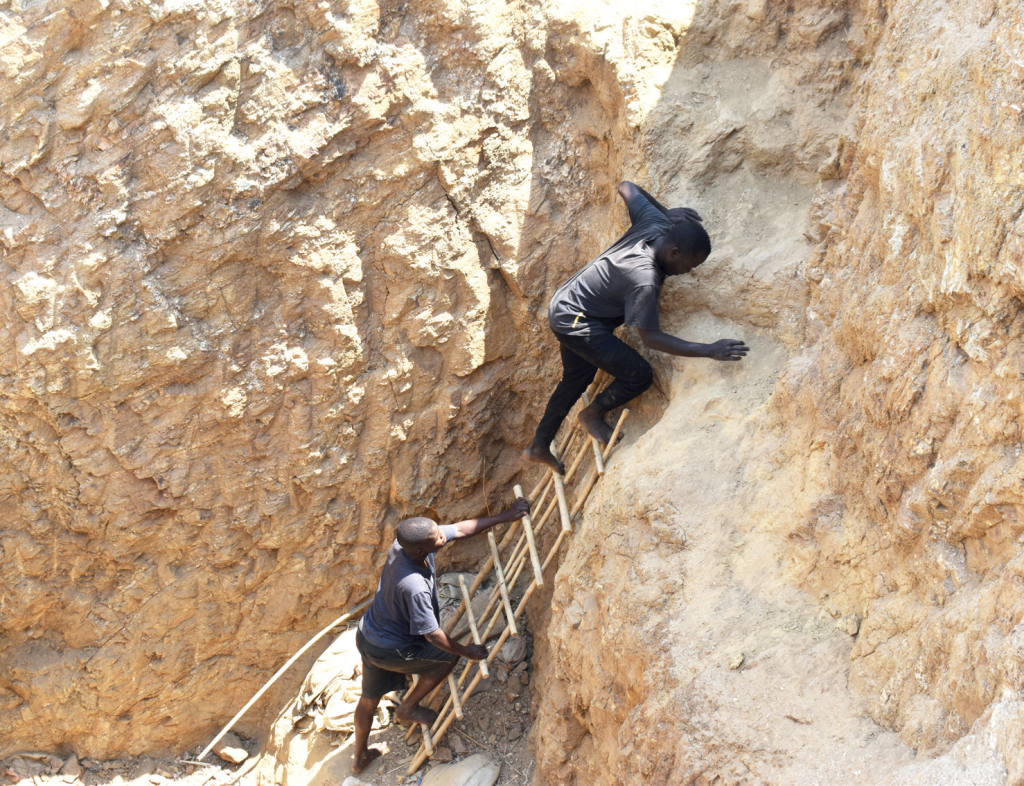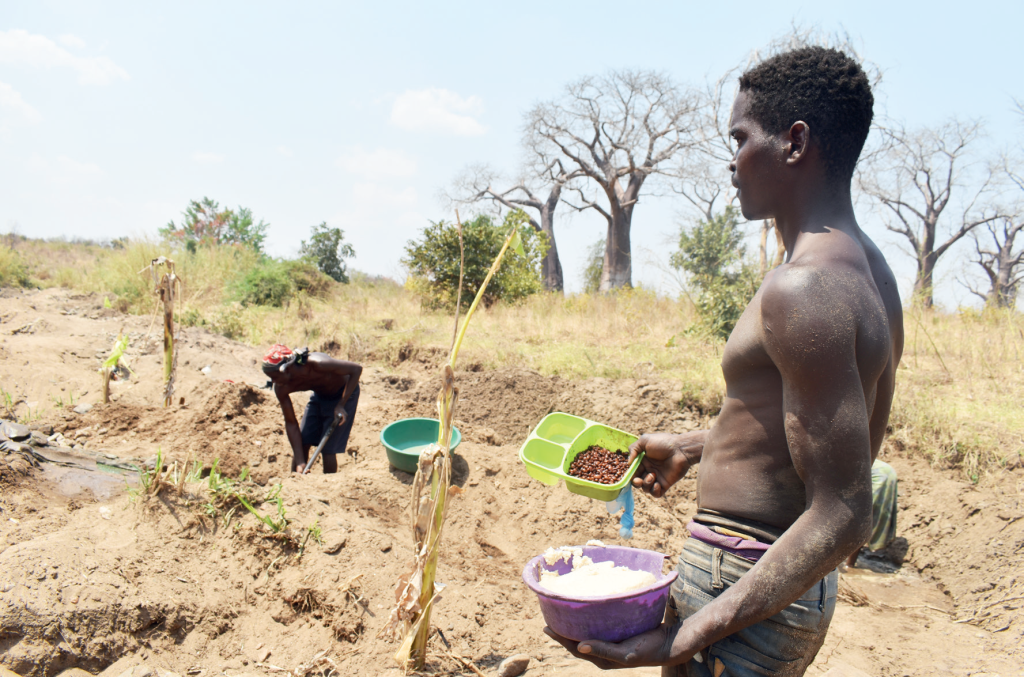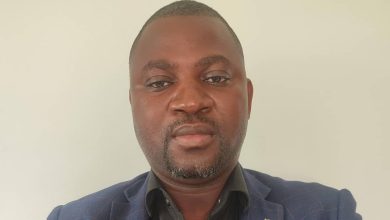Tales of Malawi’s gold rush
is 11am when we arrive in Mtsiriza, the gold-rich hills that adorn Traditional Authority (T/A) Mwansambo’s territory in Nkhotakota District.
Here, Masauko Boyson, an unblinking watcher, welcomes visitors to the rocky setting where rivers, natural forests and fertile lands are giving way to yawning pits in a fierce scramble for gold.
“This is big boys’ business,” says the guide. “I dug this pit with my own hands.”
Five years ago, the boy, then aged 19, fled a cut-throat gold rush in the tobacco-growing district of Kasungu, where a collapsed illegal mine killed eight people and injured five others on September 31 this year.
“The difference between life and death in these gold mines is razor thin,” he says.
Today, he knows what it takes to get an ounce of gold in Malawi where many grew up knowing it was nonexistent.
When he calls the race to the bottom “a game for big boys”, Boyson is not entirely echoing policy analyst Mavuto Bamusi’s findings that illicit gold mining has been hijacked by political elites and their business cronies “who seem to thrive in the chaos”.
Rather, Boyson says hunting gold in the country’s tricky terrains is not for everyone yearning for quick riches.
“The tunnels in the bowels of the rocky hills are no playfields for the fainthearted,” he says, showing scars he sustained on the back when a tunnel he was digging along a snaky layer of gold-rich rocks crumbled.
Boy son ar r i v e d i n Nkhotakota in 2020, lured by glittering pebbles spotted by stealthy explorers from Kasungu.
He is one of the seven residents of high-security grass-thatched hostels complete with beds, mattresses, fans and diesel-powered light bulbs.
Nearby, bouncers spiritedly lift weights while a crusher breaks rocks and workers sieve soil for gold.
Boyson’s team dug the first pit using picks and shovels until crumbling rocks wounded his back.
He says: “At first, there were 20 of us from T/A Njombwa in Kasungu, where farmers increasingly quit tobacco growing after discovering gold deposits, but some returned home.
“When we heard about this alluvial gold here, we came to try our luck.”
The boy’s crew got down to work in 2021, digging out tonnes of soil in search of gold deposits as little as a milligramme in a day or two.
“While digging alluvial gold, we discovered a layer of gold-like rocks sticking into the hills. We were filled with joy,” he said.
Geologist Timothy Suluma Benard, a graduate of the Malawi University of Science and Technology, says “gold deposits stuck in meandering streams signal greater things in nearby hills.”
The youth had hit jackpot in the gold leaf seams being eroded into small particles stuck in the narrow streams that zip past Tsokonombwe and surrounding villages in Mtsiriza area.
Soon, migrant miners took to the seams, elbowing the locals where they jostle for soil supposedly containing gold—a job Boyson and Suluma call hard labour.
The sudden surge in mining activity has left waterways, riverbanks and hills rampantly deformed with pits and humps of loose soil.
The earth-turning enterprise has choked rivers and streams, increasing the risk of flooding and water stress in a race to supply wealthy miners, buyers and middlemen from towns and cities.
As the locals dig and pan gold deposits in rivulets, the ‘big boys’ use machines.
One of them not only employed Boyson and his peers, but also the Must graduate.
Their mine, licenced this year, uses an excavator to rip the hills, opening two pits as they extract the gold-rich rocks in their way.
The ground-splitting machine, now rusting in a bushy stream following a breakdown, has opened an excavation the size of a netball pitch with no landscape restoration in sight.
The gaping sight proclaims how unregulated mining can harm the environment and workers when authorities doze off.
Boyson bared the scars from underneath.
“I feel lucky that I’m still alive,” he says. “The rocks would have crushed me.”
The narrow escape, unlike the Kasungu Tragedy of September 31 this year, prompted Boyson’s boss to hire the excavator, which accelerated the clearing of hills and natural trees that survived illegal charcoal makers’ axes.
“We dug the first pit with handheld tools from April to July. The excavator came in August and dug the bigger pit within two weeks in August,” says Boyson.
The barefoot workers were seen descending into the gaping pits via shaky wooden ladders, putting their lives in danger with no occupational health and safety inspectors in sight.
The youthful miners cannot recall seeing government authorities who are supposed to ensure increasing mining activities do not come at the expense of environmental sustainability, community well-being and workers’ rights.
Section 13 of the Constitution requires the State to actively promote the welfare and development of the people of Malawi by implementing policies “to manage the environment responsibly”.
This includes efforts to “prevent the degradation of the environment” and “accord the full rights of future generations by means of environmental protection and sustainable development of natural resources; and conserve and enhance the biodiversity of Malawi.

after the day’s work.| James Chavula
However, the gold rush has left the environment under siege as the Malawi Environmental Protection
Authority (Mepa), established by the Environmental Management Act of 2017, looks away.
The environmental protector is supposed to collaborate with the Mining and Minerals Regulatory Authority (MMRA), established in October 2024, to ensure the extractive industry attracts responsible investment and does not endanger the environment.
Despite the environmental damage stemming from unregulated mining that we have documented, Mepa director general Wilfred Kadewa states: “Yes, we are coordinating very well with the Ministry of Mining in ensuring that environment does not suffer at the expense of the rush for quick money in gold-rich zones.”
The environmental law gives Mepa the mandate to approve Environmental and Social Impact Assessment (Esia) for projects and stipulates that mining authorities should not issue licences unless Mepa has certified that the project has been approved or that an Esia is not required.
“With this, there is an embedded “check” by Mepa on regulated mining activities, the Mining Ministry cannot issue licences without environmental clearance from Mepa,” said Kadewa.
However, he acknowledged that small-scale and artisanal miners complicate efforts to safeguard the environment.
“They are like vendors,” said the environmental protector. “They care less about the law as such they require concerted coordination in educating them that while they are looking for livelihood opportunities in gold mining, they also have the responsibility in ensuring that the mining does not create environmental problems.”
The Mepa chief said the authority is planning restoration programmes, which require collaboration with other stakeholders “as a shared responsibility”.
Economist Mavuto Bamusi emphasised the need for government to regulate the sector.
Bamusi, who reviewed the Malawi Extractive Industry Transparency Initiative’s inroads, says regulation of the illegal mining is further complicated by the involvement of powerful curtails, starring politicians who seem to profit from the breakdown in law enforcement.
“The result is that the country endowed with so many minerals and other extractive resources is ranked one of the poorest in the world and recently we heard that we need food aid to feed over four million of our people,” he said.
Government has deployed environmental officers to all districts, but mining officers are confined to Capital Hill in Lilongwe.
Meanwhile, bureaucracy and secrecy over the free-for-all extractive sector has systemically reduced environmental officers to spectators of mining ills.

Nkhotakota district environmental officer Jane Kayira laments: “Many people are abandoning farming and fishing for gold mining. In some gold mining sites, you will find 500 to 1 000 people scrambling for farmlands, rivers, forests and other natural resources.
“This exerts pressure on the environment, which we need to conserve for our own good and generations to comel.”
She says environmental ills of unregulated mining can only worsen until government deploys mining officers closer to mineral-endowed hotspots for rapid response.
“We need to ensure miners extract our minerals responsibly, but the Department of Mining is not fully devolved. Unfortunately, my office does not have the financial muscle and adequate staff to fill the gap,” says Kayira.
MMRA director general Samuel Sakhuta says they are collaborating with Mepa to stop the “scourge on people’s livelihoods”, but has limited capacity to maintain closer ties to “areas where these activities are happening”.
“MMRA has established close alliances with all local councils in the country. This allows the councils that have personnel closer to these areas to stop operations if they can. Where they cannot manage, the MMRA still relies on their intelligence and advice on how the situation can be tackled,” he said.
However, the mining authority chief said “criminal elements who have entered the gold mining frame” pose a threat to regulators and council officials.
“It may sometimes seem that these government entities are not able to act. The will to act is there, but there are also aspects of safety of officers that have got to be considered,” said Sakhuta.
ActionAid Malawi works with local communities in Nkhotakota and Balaka to ensure mining activities do not worsen hunger, poverty and human rights violations in mining zones hit hard by climate change.
“We want to see people empowered to claim their rights and benefit from natural resources. They need to hold duty-bearers to account for equitable access to resources. They should not only bear the brunt of mining, but also get a slice of the cake,” says project officer Charles Finisi Phiri.
The locals say mining justice reforms are sluggish and the benefits scanty.
Mwasambo Area Development Committee chairperson Lawrence Jonas laments: “We hoped to benefit from mining, but it has become a burden and even authorities do not seem to care about transparency, accountability and communities that endure the side-effects of increased mining activity.
Ulemu Makukwa, 35, adds: “When government officials issue mining licences or buy gold at the Reserve Bank of Malawi [RBM] shop in Liwonde, do they see anything to smile about in communities where mining occurs? What do they think about the youth, our future and generations to come?”
The lamented environmental damage is rising across the length and breadth of the country.
In Kasungu, group village head Siliuka has similar concerns about the loss and damage around Gogodi gold mines, where the eight perished on September 31 this year.
“As the locals increasingly sell their fertile fields to gold merchants, my worry is that children growing up now will not have anywhere to produce food. How will they survive?” he asks.
For Harold Musumba of Denje Village in Nkhotakota, the gold rush only makes them poorer.
“Oh, my God! This is like a lottery. You dig tonnes and tonnes of soil to get a grain or two. Sometimes, I hit gold. Many times, I go home empty-handed. But we are selling our land for nothing worthwhile,” he said, shortly after selling 0.3 milligramme for K9 000 to a roaming buyer from the capital city, Lilongwe.
The buyer confided in The Nation that his kind prefer “dealing with smugglers from abroad and overseas” to the RBM, the country’s only official market.
“The bank offers a ready market for all, but the parallel market offers better prices,” he said, sheathing a potable scale.
However, mining expert Ignatius Kamwanje says the national gold-buying initiative is triggering unsustainable mining activities, including illegal extractions, amid negligent law enforcement.
Mining contributes one percent to Malawi’s economy, but policymakers expect it to account for 12 percent of gross domestic product by 2027.
But if the growth is achieved on the back of this mining chaos, the cost to land, lives, sustainable food systems and the general environment could far outpace any economic gains the nation may get—and even worsen poverty levels for the majority.





